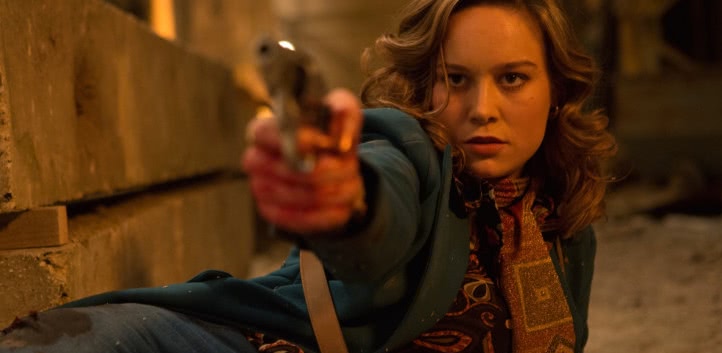★★☆
Gangster films have a storied, sad history of misogyny. Many of the genre’s archetypal ‘classics’ – Goodfellas, The Godfather, Scarface – are almost exclusively male-dominated, with the woman’s role frequently delegated to that of glorified nag. And though the heroes at the epicentre of such bloodbaths do often meet their makers, such a reckoning only comes after hours of indulgence and tacit approval, so one frequently can’t help but feel as though filmmakers sometimes use grotesque, misogynistic protagonists to channel something they find inherently alluring themselves.
Ben Wheatley’s Free Fire can be read as a deliberate riposte to this state of affairs, and the stripped-down gangster action comedy is, above all else, an obliteration of manhood. As fits the genre, the cast does almost uniformly give off the hot stink of testosterone – Brie Larson’s Justine is the only female character in the film – but, uniquely, violence, masculinity and bravery are never depicted to be in synch.
The set-up is simple: a collection of ragamuffins and rascals, chief among them Sharlto Copley’s scene-stealing idiot Vernon, meet up in an abandoned warehouse for an arms deal. But the trade-off quite quickly goes south – not, as the misleading trailer would have one believe, because of a failure to communicate, but rather because of an excess of communication. The men simply cannot keep their mouths shut, and their endless homophobia, ableism and dripping boasts eventually lead to all-out gunfire.
And yet as carefully choreographed as the action might be, director Wheatley makes sure that the bloodshed is never seen as impressive or admirable, and the film is distinctly lacking in bravado. Before too long proceedings descend into a surreal, tortured mess of groaning figures crawling about in the dirt, and the conflict is more pathetic than inspiring – particularly with the introduction of a mysterious third party of shooters who add to the chaos.
Yet Free Fire is far from perfect. There are moments – crucial moments, important moments – when the pacing slows down to a standstill, and there’s a quite visible seam between the second and third act. Wheatley and his co-screenwriter Amy Jump do a good job of keeping the dialogue crackling, but there are times when they seem stuck as to what is meant to happen next, and ‘unexpected’ character revelations are often surprisingly predictable.
There’s also very little left to mull over after the credits roll. Free Fire’s conclusion has a kind of crushing inevitability about it – it is fairly clear from the outset where Wheatley and Jump plan to end up – and the last fifteen minutes are textbook action finale. Nonetheless, the film does at least score points for its ambition – even though at the end of the day this one’s all gunsmoke and no fire.


































